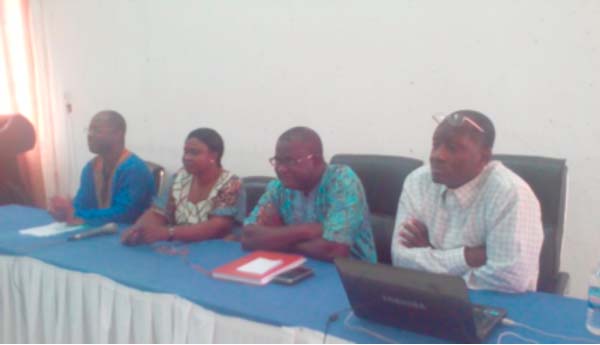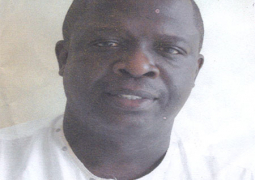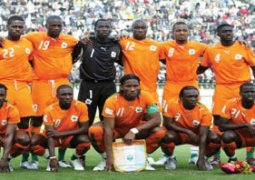
Training
of Civil Society Organizations (CSO’s) on budget literacy and expenditure
tracking is currently underway at TANGO Conference Hall in Kanifing.
The
training, which runs from 10 to 12 May 2017, was organised by the Child
Protection Alliance (CPA) through the European Union Child Rights
funded-project in LRR, CRR and URR.
It
was attended by CSOs across the country from various child rights-led
organisations.
In
his remarks at the training, Njundu Drammeh, CPA National Coordinator, said it
was a very important training.
He said when they traced back about 26 years
ago, the Gambia ratified the convention on the rights of the child in 1990, and
in 2000 it ratified the African Charter on the rights and welfare of the child
and in 2005 it domesticated the International Legal Instrument and gave the
children of The Gambia the Children’s Act 2005.
He
said the issues to be discussed in during the seminar would centre on children
and their rights.
Mr
Drammeh added that because they are talking about nearly half the population of
the country they also know the importance of budgets for the fulfillment of the
rights of children.
Drammeh
further said looking at the local Government Act 2002 one would realise that
the local government itself has very important role to play regarding
education, birth registration, recreation, and youth facilities and these
things could not come about when resources are not there.
The
budget measures Government commitment to the fulfillment of children’s rights,
which makes the training very important.
This
could not happen if they do not understand how the budget works and its cycle.
He
said the whole exercise was within what they called ‘child-friendly budgeting’.
“It
is not a separate budget for children but is about understanding the budget and
how much of those resources allocated to the department of social welfare or
the Ministry of Basic and Secondary Education, for instance, goes into children
issues.”
When
they are literate about the budget and how it works they would be able to
influence the budget, he said.
According
to Mr Drammeh, they could only influence the budget if they know the cycle, for
instance at what point they should intervene to make sure that adequate budget
is catered for the welfare and wellbeing of children and once they know that
they would be able to track that.
Abdoulie
Faye, Project officer at CPA for the EU Child Rights project, said the training
was for CSOs on Budget literacy and expenditure tracking organised by the Child
Protection Alliance.
He
said empowering child focus organizations to promote children’s rights in three
regions is a project funded by the European Union and Actionaid being
implemented by CPA and FAWEGAM, mainly targeting LRR, CRR and URR.
“The
project is currently engaging different stakeholders from community to national
levels in a bid to enhancing the protection of children at school and at
community levels as well as empowering children to understand their rights and
responsibilities and participate in decision-making at all levels.”
“We
all know that budget allocations and spending in relation to children are
effective indicators of political will and commitment of the Government and
should be regularly monitored.”
He
said the abilities and confidence of CSOs to advance the rights of children
could be greatly enhanced if they also have requisite capacity to undertake
start budget analysis and expenditure tracking to facilitate their advocacy and
influence policies and programmes in the best interest of children.
“I
hope the knowledge gain from the training will impact positively in the lives
of our dear children,” he said.
Tabou
Correa, Project Coordinator; said budget literacy and expenditure tracking is
for each and every one of them because they need to be trained to know where
they could go to get certain services done.
She
said the most important thing was for the children to be catered for when
budgeting is being done.
She
added that civil society organizations are supposed to know these things in the
country.
Children
are left out most of the time, which was why they came together with project
proposals to be able to tackle these issues, she added.
She
said their responsibility was to participate and also look for ways and means of
putting duty bearers to task.
It
was not easy but through networking, communication, and interactions they could
do it, she said.
She
said at the end of the training they should be able to come up with plans that
would help them to ensure that what they are aiming at was achieved.
Read Other Articles In Article (Archive)




